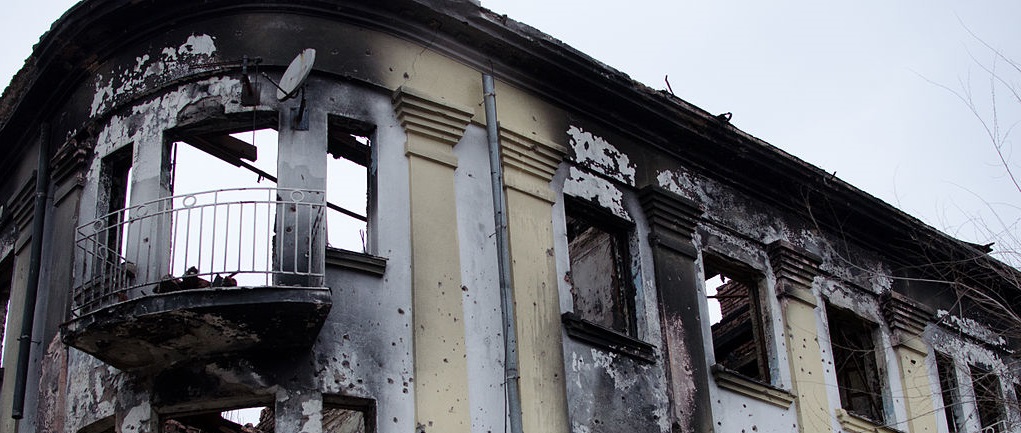Mae'r cynnwys hwn ar gael yn Saesneg yn unig.
I remember Mariupol. I visited the Russian-speaking port of around 500,000 people in the summer of 1983. It was then Zhdanov, a city of the Soviet Union on the Sea of Azov, adjacent to the Black Sea. Named, as were many Soviet cities and towns, after a prominent Communist: Andrei Zhdanov, a close associate of Joseph Stalin, responsible for ideology and cultural policy. He died in 1948.
It was my first visit to the Soviet Union, which now seems like another universe. I have since made regular academic visits to Ukraine, Belarus, and Russia, observing and writing about the changes there have been. In 1983, I led a party of mature students, from the University of Nottingham, on a study tour looking at labour conditions, trade unions, and social welfare. The visit began at Leningrad (now St. Petersburg), next Moscow, and then Donetsk, in the coal-mining region of Ukraine’s Donbas. Among the visits made was one to a coal mine, among our party mineworkers from the East Midlands.
We then spent a relaxing day by the seaside at Zhdanov. It was a long time ago and, unfortunately, I cannot now find the photographs I took that day. Yet, I have images in my mind’s eye. The first is of quiet streets, of small, leafy local squares, with elderly men playing chess, elderly women with their grandchildren, couples walking out; the second is exchanging cigarettes with three young soldiers. This was when the Soviet Union was at war in Afghanistan; the third is drinking kvass, a non-alcoholic beer, bought from a small tanker parked in the square; the fourth is watching an angler on a stone pier into the Sea of Azov. Finally, eating morozhenoye or creamy ice cream on the steps of a white neo-classical theatre, among young and old enjoying the sunshine. A relaxing day by the seaside, before going to Kyiv, or Kiev as it then was, and again to Moscow; a long train journey passing through Kharkiv at night.
The end of the Soviet Union saw Zhdanov resume the historical name of Mariupol and, after a referendum in 1991, become part of a sovereign Ukraine. As such, it took part in the slow development of a democratic and parliamentary polity, with local government, a burgeoning civil society, and a free-market economy. The port city of Mariupol was prosperous and peaceful. Ominously, however, since 2014 the Donetsk oblast (region) in which Mariupol is located, has been involved in a separatist insurgency fomented by Putin with his dream of a Greater Russia, which included the annexation of Crimea. This continued until 24 February 2022 when Russia invaded Ukraine.
Today, the Russian speaking city of Mariupol is under siege; its citizens the victims of murderous bombardment; homes, schools, university, hospitals, including a maternity ward destroyed; a theatre bombed when sheltering women, children, and the elderly, with an estimated three hundred dead; refugees, and mass graves; 200, 000 civilians still trapped under appalling conditions, as Putin’s military use the brutal tactics of Grozny and Aleppo; thousands more deported to filtration camps in Russia, reminiscent of those used by Putin in the Second Chechnya War. So much human suffering, another civil society destroyed.
Last week, Sergei Lavrov, the Russian Foreign Minister, a brazen apologist for the regime, spoke to students at the Moscow Institute of International Relations. He said that among the objectives of Russia’s ‘special military operation’ were the ‘liberation’ of Ukraine and the ‘protection and restoration of Russian culture.’ A 17th century English ambassador, Henry Wotton, once said that diplomats were honest people sent abroad to lie for their country. Here we have a cynical and dishonest Russian diplomat lying to his own country as well as to others! Charges of indiscriminate bombing, shelling, wounding, and killing of civilians receive flat denials. Yes, I remember Mariupol, nor shall I forget Sergei Lavrov and his political master Vladimir Putin.

